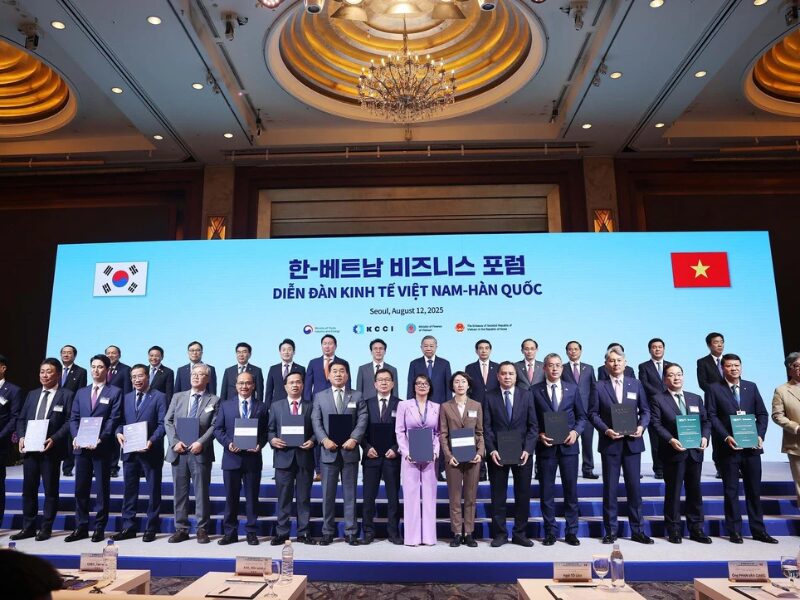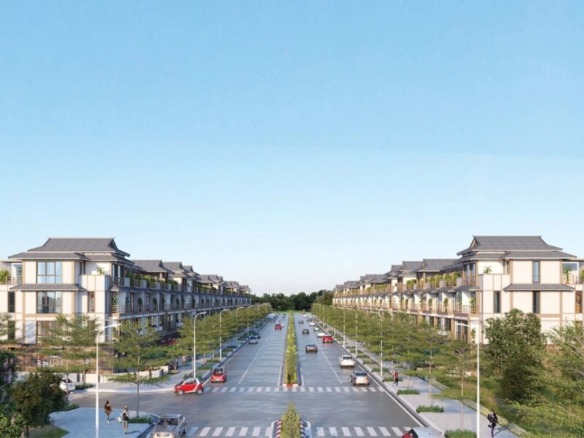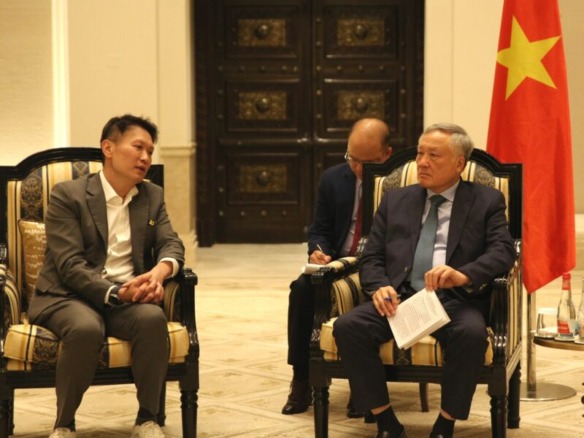Contents
Vietnam-South Korea business agreements marked a significant milestone on August 12, 2025, as leaders from both nations witnessed the signing of over 40 pacts. These deals span energy, technology, and infrastructure sectors. For foreign investors, this signals robust opportunities in Vietnam’s growing market. With South Korea as one of Vietnam’s top investors, these partnerships could drive further foreign direct investment (FDI). Recent data shows bilateral trade reached $86.8 billion in 2024, aiming for $150 billion by 2030.
Moreover, the agreements align with Vietnam’s push for sustainable development. Investors interested in real estate can note expansions in industrial parks and high-tech zones. This enhances Vietnam’s appeal amid global supply chain shifts.
Overview of the Vietnam-South Korea Economic Forum
The event, themed “Cooperation in Developing Production Chains in the New Era,” brought together key figures. General Secretary To Lam of Vietnam and Prime Minister Kim Min Seok of South Korea oversaw the exchanges. This forum underscores mutual trust and shared economic goals.
In addition, the pacts reflect strategic responses to global challenges, such as US-China trade tensions. For instance, they focus on diversifying supply chains, which benefits international investors eyeing Vietnam as a manufacturing hub.
Vietnam-South Korea Business Agreements in Localities
Several deals involve Vietnamese provinces and Korean firms, emphasizing regional growth.
- Hai Phong City partners with SK Leavo to promote green growth initiatives.
- Hanoi collaborates with One Law Partners (OLP) on investment plans for Hoa Lac High-Tech Park, a prime real estate opportunity for tech investors.
Furthermore, Khanh Hoa Province and SK Innovation will develop a Specialized Energy Industrial Cluster (SEIC). This includes LNG investments and logistics, potentially boosting local property values.
Similarly, Ca Mau Province’s strategic pact with SK Innovation targets LNG projects and agricultural advancements. Can Tho City focuses on clean energy technologies with the same partner.
Bac Ninh Province expands investments with Si Flex in its industrial parks. These Vietnam-South Korea business agreements highlight real estate potential in northern industrial zones.
Energy and Industry Sector Highlights
Energy dominates the agreements, offering insights for investors in renewables.
For example, Vietnam Maritime Corporation (VIMC) and HD Hyundai form a joint venture for shipbuilding. This could spur maritime infrastructure development.
Additionally, Vietnam Electricity (EVN) and Hyosung Heavy Industries plan STATCOM projects and smart grids. They may produce transformers locally, reducing costs for energy investors.
LS ECO Energy’s memorandum with SK Innovation involves a high-voltage cable factory for renewables. Such initiatives support Vietnam’s green energy goals, attracting eco-focused funds.
Vietnam Airlines and Korean Air will establish maintenance services at Long Thanh Airport. This enhances logistics, indirectly benefiting real estate around transport hubs.
The Vietnam Chamber of Commerce and Industry (VCCI) and its Korean counterpart collaborate on energy, AI, high-tech agriculture, and logistics. These fields promise high returns for savvy investors.
KN Holdings and Samsung C&T target three floating solar projects. Peridot Energy Vietnam partners with Gas Entec on green fuels. The Green Solutions and BIONANOKOREA focus on hydrogen and ammonia chains.
Digital Infrastructure and Supply Chain Collaborations
Digital transformation features prominently, appealing to tech-savvy investors.
Vietnam Posts and Telecommunications Group teams with KIRA and LG CNS for data centers. Initial capacity is 20-30MW, with joint operations in Vietnam.
These pacts build on South Korea’s tech expertise, positioning Vietnam as a data hub in Southeast Asia. Investors can explore related real estate in digital parks.
Overall, these Vietnam-South Korea business agreements strengthen economic resilience. With Vietnam’s GDP projected at 6-7% growth annually by the World Bank, opportunities abound. However, navigating regulations remains key for success.
For more on doubling trade to $150 billion by 2030, see Bloomberg’s analysis. Reuters details recent pledges for closer ties. SCMP explores joining forces amid US-China rivalry.





Join The Discussion